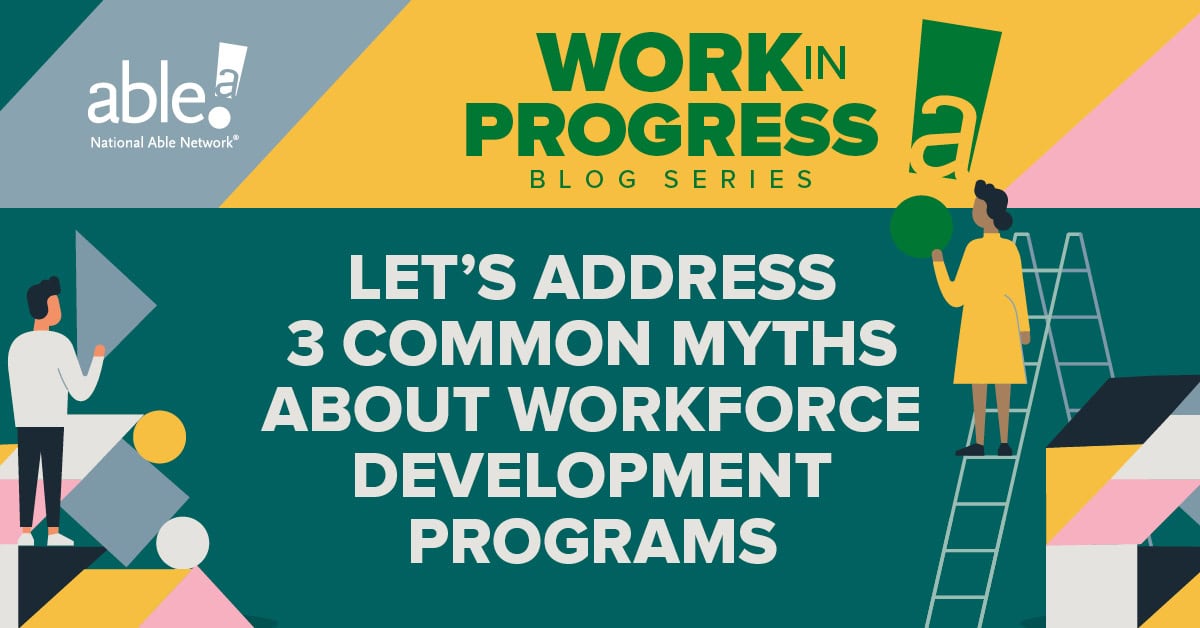Did you know that workforce development programs help millions of individuals transition into new careers, upskill, and connect with better opportunities? Despite the impact of these programs, many misconceptions still exist. Let’s set the record straight!
Workforce development programs bridge the gap between education and employment, allowing people to enhance their skills or even start a brand-new career. However, there are several misconceptions surrounding workforce development. Here, we debunk those myths:
- Myth 1: Workforce development programs are not valuable for highly skilled professionals.
-
- Truth: This is far from the truth. Highly skilled workers at the top of their field can still gain valuable knowledge about their industry. Workshops can fine-tune advanced skills, as technology and software evolve, understanding how to use them can advance career development. Leadership workshops are important for those looking to take on more organizational responsibility or supervisory roles. Workforce development programs focus on emerging sectors and provide access to the latest industry innovations essential for sustaining or growing one’s career.
- Myth 2: They only benefit the unemployed.
-
- Truth: While it is true that they are helpful to unemployed individuals, workforce development programs serve a diverse range of people in a diverse range of career pathways. Networking connections can assist in advancing careers, potentially leading to new opportunities in the job market. The opportunity to learn new skills is valuable in any industry. For example, an IT professional can gain experience in data analysis, or an engineer can receive training for new modeling software. Workforce development programs benefit all kinds of workers.
- Myth 3: Participating in a workforce development program will not lead to a job.
-
- Truth: False. Many programs are closely aligned with industry and business needs, and the skills gained are valuable to employers. For most individuals, the transition from training to employment is seamless. Through direct job placements and networking connections, participating can directly lead to employment. Programs focus on teaching skills that are in demand, such as skilled trades, coding, data analysis, and certifications for tech and health; all highly valuable skills that employers look for in candidates.
This is the true value of workforce development! Whether you’re recently unemployed, entering a new position, or transitioning to another career, workforce development programs can provide value and support. National Able Network’s programs and services may certainly benefit you in your career.
What’s one skill you have gained through workforce development? Share in the comments!
Explore how National Able Network’s programs and services can benefit your career at www.NationalAble.org/job-seekers.

